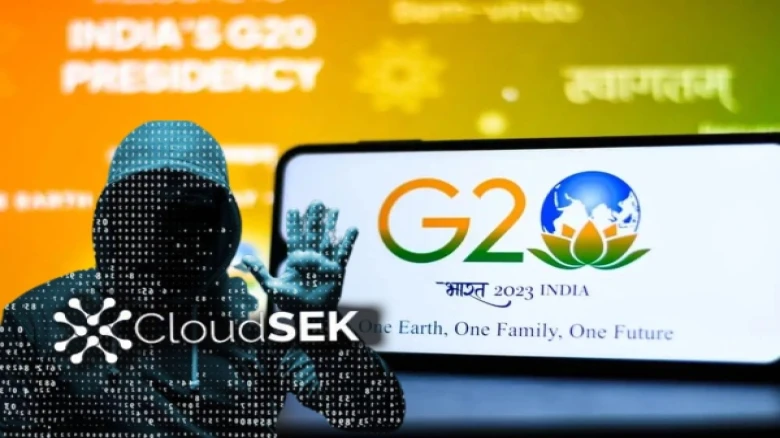International

CloudSEK's contextual AI digital risk platform, XVigil, discovered that hackers' major target is the government's digital infra...
Digital Desk: Researchers from domestic cyber-security company CloudSEK discovered a scheme by numerous hacktivist organisations from Pakistan and Indonesia to launch cyber assaults on India as India prepared for the much-anticipated G20 Summit here in the capital over the weekend.
CloudSEK's contextual AI digital risk platform, XVigil, discovered that hackers' major target is the government's digital infrastructure.
"The #OpIndia campaign is motivated by a complex web of political factors, with many attacks seen as retaliatory strikes in the ongoing hacktivist warfare between nations." said the researchers.
The researchers highlighted that "the primary attack methods anticipated in this campaign are mass defacement and DDoS (distributed denial of service) attacks."
On September 7, an ominous call to action was issued by Team Herox, a hacktivist organisation, using the encrypted messaging network Telegram.
"They sought assistance from other hacktivist organisations to join forces for a series of attacks scheduled for September 9-10, perfectly aligning with the G20 summit's timeline," the researchers explained.
Hacktivist organisations have previously planned cyberattacks on both public and private Indian businesses, employing tactics ranging from distributed denial of service attacks to compromised account takeovers and data leaks.
"These hacktivists consistently use major political events like the G20 Summit to gain visibility, making the government's digital infrastructure a primary target." "The coordinated efforts of hacktivist groups from Pakistan and Indonesia to target India's G20 Summit with planned cyberattacks are a stark reminder of the digital threats nations face," said Darshit Ashara, CloudSEK's Head of Security Research and Threat Intelligence.
A similar observation was emphasised by the researchers in a recent hacktivist effort that targeted over 1,000 Indian websites in August as part of their Independence Day campaign.
The campaign, organised by hacktivist groups from many nations, used strategies like DDoS assaults, defacement attacks, and user account takeovers, matching the trends already mentioned in CloudSEK's research on hacktivist warfare.
Ashara continued, "Our objective is to keep ahead of these emerging hazards and enable businesses and individuals to strengthen their digital defences. To stop these nefarious acts, CloudSEK advised enterprises and agencies to uphold their vigilance and strengthen their cybersecurity safeguards."
The research also shows that hacktivist attacks significantly increased in the first quarter of 2023, with India emerging as the main target of attacks.
Leave A Comment